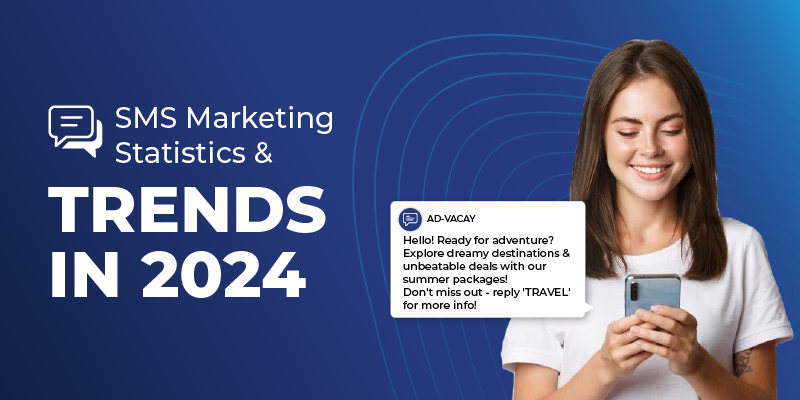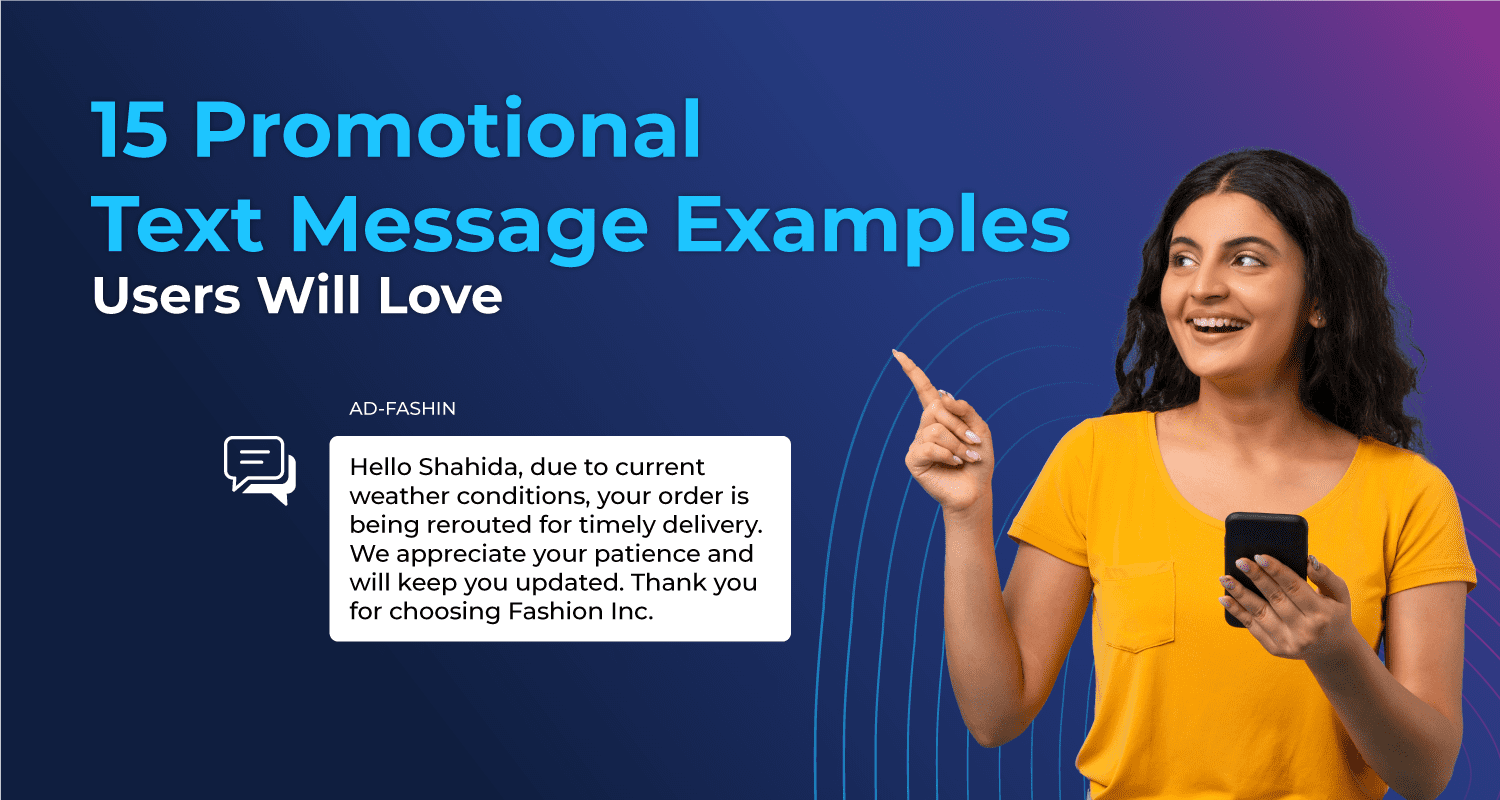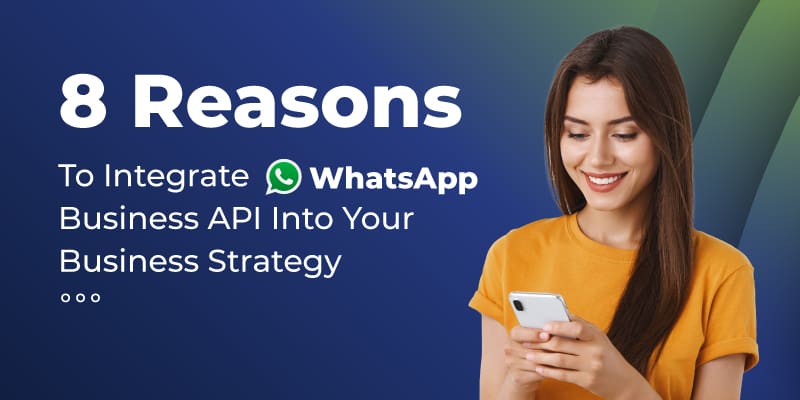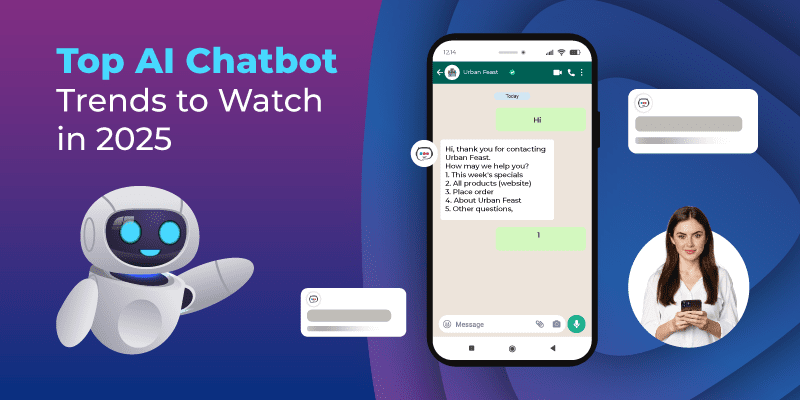One of the most effective ways to scale your enterprise is through automated business communication using API integration.
Look at how top brands can skyrocket their growth by leveraging SMS API features and benefits such as:
- Sending millions of messages to their customers daily.
- Leverage immediacy for maximum engagement.
- Personalise at large scale
- Fuels their operational efficiency and productivity
All of this is possible due to embracing the versatile applications of SMS API integration for your business.
However, companies struggle to adapt or leverage the full potential of SMS API mostly due to their unfamiliarity and skepticism towards it.
In this detailed guide, we introduce you to the mechanics of SMS API-how it works, the terminologies that help you navigate the complexities of the process easily – and much more.
Table of Contents:
Understanding The Basics Of SMS API
Before you know what SMI API can do for your business, let’s first understand the basics of SMS messaging API.
What is an SMS Messaging API?
API stands for “Application Programming Interface,” which allows different applications to interact and integrate with each other and exchange information. SMS API helps bridge the gap between telecommunication carrier networks and the Internet.
Basically, when you want to automate your SMS in business communication so that it can be automatically sent to a large database of customers, an SMS Messaging API will be required. It provides a software interface enabling code to send SMS using an SMS gateway.
This API will be used on a service or software like Route Mobile’s messaging platform, enabling the brand to craft, manage, send, track, and analyse numerous messages under a campaign.
Also, with such SMS API services, businesses can manage their text messaging campaign through cloud communication services or platforms.
Also Read: 10 Essential Metrics For Measuring The Impact Of Promotional SMS Campaign
Important Terminologies/Concepts
To really understand how SMI API works, it is essential to get familiar with common terminologies and concepts of SMS messaging API systems/solutions. Here are the most prevalent ones you are most likely to hear:
-
API Keys
Provide information about the API that allows access. It is a unique identifier that allows messages to be sent through a third-party application.
-
A2P Messaging
A2P stands for Application-to-Person, a type of messaging sent from an application to a phone.
-
Sender ID
Numeric/alphanumeric value assigned to a unique sender of a message.
-
10DLC
An abbreviation for 10-digit Long Code, an option for A2P messaging that acts as a local phone number to the recipient.
-
Delivery Status
These are delivery receipts sent by mobile operators to the SMS messaging API provider to update them about the delivery status of the
message. -
Latency
It refers to the amount of time it takes to send the message using SMS API.
-
CPaaS
CPaaS stands for Communication Platform-as-a-Service. A cloud-based platform allows one to manage multiple communication channels, such as SMS, Voice calls, Video chats, etc., on a single platform. Businesses don’t have to build their own backend program for this. Route Mobile’s CPaaS allows managing multiple communications using APIs.
-
GSM-7
A character encoding standard covering most of the common characters that are used in various languages to send messages.
-
Throughput
Refers to the number of messages that can be sent per second, denoted as TPS (Throughput per second).
-
DLR (Delivery Report)
This is part of an SMS automation workflow that indicates a message’s delivery status.
How Does SMS Messaging API Work?

SMS messaging API acts as a bridge between these two distinct worlds, i.e., telecommunication and the Internet. It connects telecom carriers to the cloud-based platform, further integrating various types of applications on a unified platform.
Once you integrate SMS API, you can send SMS through automation, saving infrastructure, resources, time, and money.
Read More: The Power of APIs In CPaaS: Easy Communication Integration
How SMS API Helps Businesses?
Businesses can use SMS Messaging API to:
- Automate mundane tasks
- Send bulk messages simultaneously
- Allow two-way messaging with customers
- Send OTPs
- Promote sales, offers, and discounts
- Use two-factor authentication to ensure security
- Track & analyse messaging/marketing campaigns
- Allow sender verification and authentication
- Confirm bookings, appointments, and orders
- Customise and personalise bulk messaging
- Send Automated Transactional SMS
What Are The Benefits Of SMS API Integration?
Allow Businesses To Scale
SMS API integration allows businesses to send and manage a large number of customers through a unified platform using API, connecting a multitude of communication channels to each other.
Features like automation, scheduling, personalisation, and segmentation increase efficiency and optimise the process for better results.
Tracking And Analysing Features
Using SMS API, enterprises can easily track their messages with details like the exact time of message delivery and delivery recipients.
Businesses have access to data that helps them maintain a proper audit trail, enable escalation, and allow message tagging.
Boost Customer Retention
SMS messaging API allows automation and streamlining of the various types of messages, such as:
- Transactional SMS
- Promotional messages
- Opt-in & opt-out messages
- Feedback & surveys
- Loyalty programs & reward updates
- Important notifications & alerts
This meets the specific needs of businesses, helps in increasing engagement, and improves customer experience, leading to a high retention rate. So, it ensures customers keep coming back to you.
Automation To Boost Efficiency
One of the game-changers for business communication is the process of automation, where a large number of SMS can be scheduled to send and also receive messages on a single platform.
This reduces the need for staff and resources, saving operational costs. Also, sending scheduled time-sensitive messages at the right time to leverage customer engagement adds to the efficiency.
Bringing Convenience Into Telecom
Using API, whether through SMS or voice calls, can be done and managed efficiently through an online platform, sending and receiving both on it. Also, customers do not need to reach you through multiple numbers, making it so much more convenient.
Cost-Effective Solution
SMS API is a much more cost-effective solution through a CPaaS than setting up your own text messaging backend system.
Provides Ultimate Compatibility
SMS messaging API is capable of connecting a variety of software to each other, including CRM, marketing, e-commerce, and communication platforms, providing ultimate compatibility.
Also Read: Leverage SMS For Seasonal & Event-Driven Marketing With A Twist
How To Use An SMS Messaging API?
Here are different ways through which SMS API can integrate into a platform or application:
- Accessing the API directly
- Using a third-party integration platform
- Building your own API
You can access the API directly, which requires a learning curve and time, whereas building your own API is not something we recommend at all.
The best option is to hire a reputed SMS messaging API service provider like us! With Route Mobile, you can leverage our expertise, infrastructure, industry experience, and robust platform to streamline business messaging campaigns.
Use Cases Of SMS Messaging API
Here are some major use cases of SMS Messaging API :
Business Notifications
- Order confirmations, delivery status, shipping updates, and password change requests.
- Appointment booking confirmations and meeting/appointment reminders, such as doctor appointment details and reminders in the healthcare industry.
- Regular account activity alerts, updates, transaction alerts, and statements are sent to bank account holders.
SMS Marketing Campaigns
- Promotional offers, sales announcements, and special discounts are sent to customers or subscribers.
- Personalised messaging, like wishing on birthdays and festival celebration messages to increase engagement and brand loyalty.
Customer Support
- Automated responses through chatbot integrations for better customer engagement. For example, it is ideal for answering frequently asked questions without any delay.
- Two-way communication for developing more trust and brand loyalty
Authentication
- OTP (One-time Passwords) for secure logins, password changes etc.
- Verifying the user’s identity through SMS OTP verification.
- Two-factor authentication (2FA) for optimised security and data protection.
Conclusion
Without SMS messaging API, businesses have to manually send every SMS through mobile phones to their customers individually. Can you imagine that?
SMS API empowers business communication by bringing scalability, automation, personalisation, and management to process.
This guide is a great kickstarter to take the initiative toward SMS API integration. However, you will need a reputed and leading cloud communication platform like Route Mobile.
We offer a next-gen messaging platform with a suite of comprehensive solutions like A2P messaging, 2-way messaging, and SMS API to grow your business exponentially. Contact our experts to get started with your SMS messaging API.
FAQs
What is the Significance of Uptime for an SMS Messaging API?
The uptime of an SMS API is what ensures that the API is available around the clock to access the API integration on the application. Any downtime simply means not being able to send or receive messages or access the platform to perform any functionality, which leads to reduced efficiency.
How Much Does SMS Messaging API Cost?
The cost of SMS messaging API depends upon the API provider you choose, the type of messages you send, the volume of messages, and other factors.
What Types of Businesses Use SMS API?
Businesses across industries, like FinTech, real estate, Healthcare, Retail, etc., can use SMS API, including airlines, restaurants, delivery companies, travel and hospitality brands, insurance firms, banks, financial institutions, and many more.










